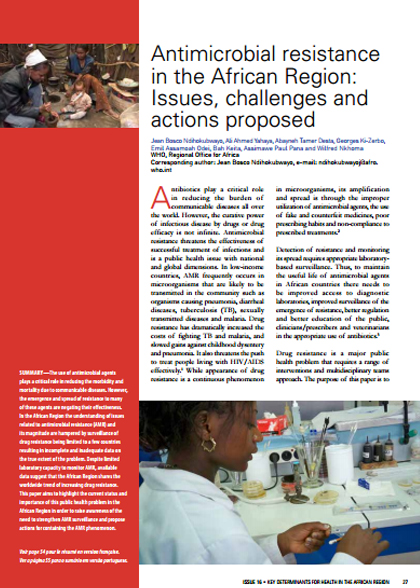
Antimicrobial resistance in the African Region: Issues, challenges and actions proposed
Antibiotics play a critical role in reducing the burden of communicable diseases all over the world. However, the curative power of infectious disease by drugs or drug efficacy is not infinite. Antimicrobial resistance threatens the effectiveness of successful treatment of infections and is a public health issue with national and global dimensions.
In low-income countries, AMR frequently occurs in microorganisms that are likely to be transmitted in the community such as organisms causing pneumonia, diarrheal diseases, tuberculosis (TB), sexually transmitted diseases and malaria.
Drug resistance has dramatically increased the costs of fighting TB and malaria, and slowed gains against childhood dysentery and pneumonia. It also threatens the push to treat people living with HIV/AIDS effectively. While appearance of drug resistance is a continuous phenomenon in microorganisms, its amplification and spread is through the improper utilization of antimicrobial agents, the use of fake and counterfeit medicines, poor prescribing habits and non-compliance to prescribed treatments.


